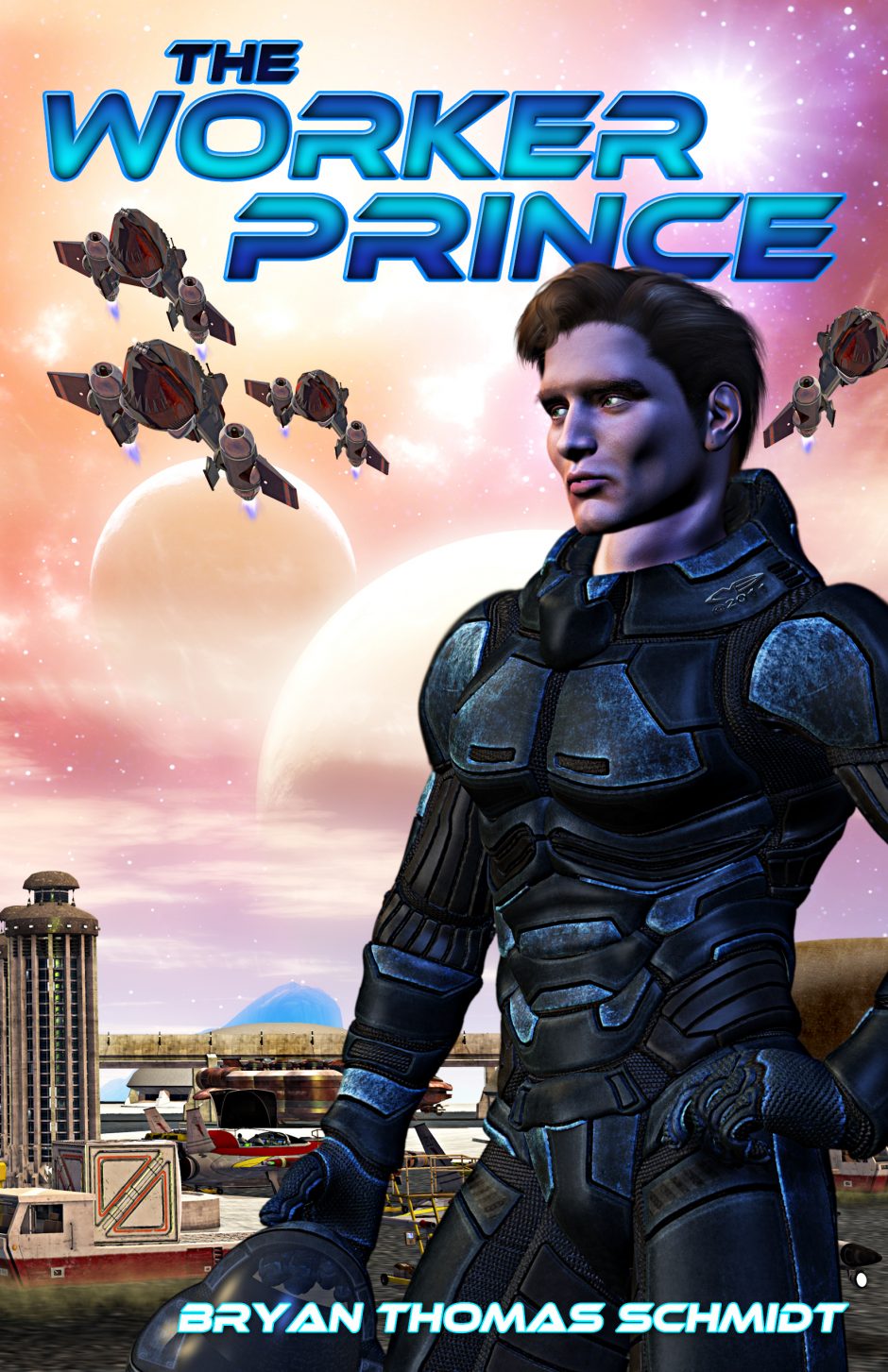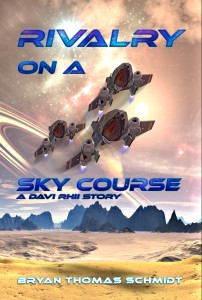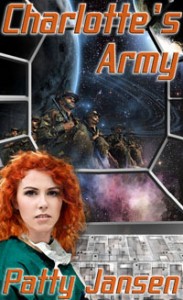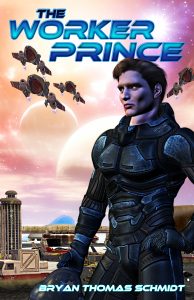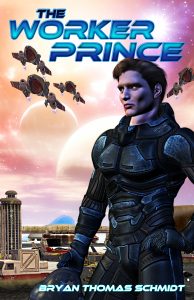 One of the highest compliments I’ve gotten on my debut novel, The Worker Prince, and I’ve heard it over and over, is that it “feels like reading Star Wars: A New Hope.” This was very deliberate on my part, and I referred a lot in writing it to Timothy Zahn’s Thrawn Trilogy and Kevin J. Anderson’s Jedi Academy books. It’s a challenge to capture the feel without going too far into imitation. And while watching the films repeatedly and reading tie-in books is definitely essential, I also think there are other factors which must be present to lend the right aura. Here are the 8 I’ve identified:
One of the highest compliments I’ve gotten on my debut novel, The Worker Prince, and I’ve heard it over and over, is that it “feels like reading Star Wars: A New Hope.” This was very deliberate on my part, and I referred a lot in writing it to Timothy Zahn’s Thrawn Trilogy and Kevin J. Anderson’s Jedi Academy books. It’s a challenge to capture the feel without going too far into imitation. And while watching the films repeatedly and reading tie-in books is definitely essential, I also think there are other factors which must be present to lend the right aura. Here are the 8 I’ve identified:
1) Your story must have an epic scope. Both Star Wars and The Worker Prince are stories about a quest of good vs. evil, to win justice over evil and save the universe, or at least their part of it. This is epic and requires bigness: big baddees, big ships, big planets and world, big stakes, big heroes, etc. You can’t really do it well staying inside an Enterprise or just on a single planet. There has to be a larger picture and bigger feel to capture it. Despite the different key focus of each movie or book, all encompass this epic scope of good vs. evil.
2) Larger than life characters. You need characters we can relate to, yes. Who can’t relate to the young farm boy with big dreams of a more exciting life somewhere else? Both Luke Skywalker and Davi Rhii (protagonist of The Worker Prince) share that trait. And thus, the first segments of both trilogies are coming of age tales about their quest to become men and men with a purpose. Han Solo and Leia are larger than life. Leia may be a petite figure but her attitude far outsizes her physical body. Han Solo is edgy. He comes off as dangerous and unpredictable, but, as we get to know him, he has a morality not so different from our other heroes, and, above all, he wants good to win. Chewbacca is another obvious example, as is Darth Vader. Both are feared on sight for similar and different reasons. And both are formidable foes. One possesses a kind, giving heart. The other is selfish and cruel. But neither does it half way. Vader takes his cruelty to the extreme just as Chewbacca takes his kindness to extremes with his loyalty and dedication to his friends. I gave Davi Rhii some companions who have trait like this. None of them is a copy or exactly identical to any Star Wars character. I was careful about this. Davi’s love interest, Tela, is a pilot, a slave, but she has Leia’s sass, values and strength of will. His companions Yao, a tall alien, and Farien, a shorter, bulker, edgier human, compete and banter with Davi throughout their adventures much like Luke, Han and Leia do. And the bad guy, Xalivar, is definitely a dark lord, even though he and Vader approach it very differently. The anti-heroes are not dominant in these worlds. Luke is pretty clear cut in his goodness as is Leia. Han teeters on the edge but he comes out good overall in the end. The same is true of characters in my saga. There are very clear cut bad and good characters, not a lot left up to reader interpretation.
3) Adrenaline filled, relentless action. High stakes require a sense of fast pace and constant jeopardy for your characters. They can never be totally at ease or seem 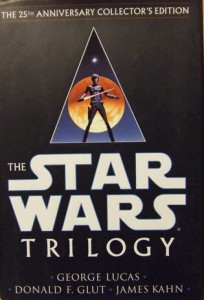 to get ahead without something new and dangerous knocking them off course. The action scenes are intense, with real danger, and the character’s witty banter adds to both the urgency and tension while also infusing much needed humor at times. Zahn and Anderson’s action scenes were particular important to me in writing the many action sequences of The Worker Prince, because I wanted to capture this style. I also had to make sure the action only lets up for short periods. The story always had to keep its sense that the heroes’ lives were on the line.
to get ahead without something new and dangerous knocking them off course. The action scenes are intense, with real danger, and the character’s witty banter adds to both the urgency and tension while also infusing much needed humor at times. Zahn and Anderson’s action scenes were particular important to me in writing the many action sequences of The Worker Prince, because I wanted to capture this style. I also had to make sure the action only lets up for short periods. The story always had to keep its sense that the heroes’ lives were on the line.
4) An overarching ideology with which characters must wrestle and which they must interpret in living according to their own understandings. In Star Wars, this is called “The Force.” In The Worker Prince, I used a conflict of religions. Not only do all characters good and evil wrestle with what these belief systems mean for them and how to interpret them in their lives (in both stories), but so do the two major opposing forces: The Empire and The Rebels in Star Wars, The Borali Alliance and the Vertullians in The Worker Prince. Some characters, like Han and Farien, are indifferent and don’t really hold much credence to the ideologies. They live by their own code of morality, even if they share some of the larger ideology’s values. Other characters honor the ideology for living good lives, serving others, like Luke, the Jedi, Leia, Davi Rhii. Vader, Xalivar and the baddies, however, turn that ideology into a force for evil. Vader playing with the dark side, and Xalivar persecuting anyone who doesn’t share the traditional birthright and ideology of his Boralian people.
5) Rapport/banter. I already mentioned how much this adds to action scenes but it adds to character in general. Good guys banter. It’s part of their rapport. And good guys banter with bad guys as well. Much of this occurs with humor. Humor humanizes the characters, lessens the tension at the right moments, and endears the characters to the audience. It’s fun, too. Banter is difficult to write without dipping into silliness. Star Wars has certainly been accused of it, at times. And I’d imagine The Worker Prince will get a few criticisms, too. But audiences love it. C-3PO and R2D2 aren’t popular for their looks. It’s their heart and personality, so often expressed through banter, which won audiences over. There’s a reason action movies are known for quotable lines. They may be silly but they sure are memorable. The key is to find proper balance and not take it too far one way or the other.
6) Cool gadgets and vehicles. Lightsabers, blasters, landspeeders, X-Wings, Tie Fighters, The Millennium Falcon–these are characters as much as the people in Star Wars. In The Worker Prince, we have blasters, datapads, Skitters, Floaters, air taxis, VS28 fighters and more. All these ships become huge parts of the world and how it operates. And they play essential roles in the characters’ abilities to survive and triumph over adversity. Can you imagine the stories without these things?
7) A Sense Of Wonder And Discovery. It’s no accident that Star Wars: A New Hope is a coming of age tale. It’s about Luke’s self-discovery and we discover it along with him: his world, his abilities, his future, etc. Davi Rhii takes a similar journey in The Worker Prince. Both approach the world, as young people often do, with wonder and curiosity that’s contageous. And they also share a drive to discover how to make the world better and how to be better men. The second stories, Empire Strikes Back and The Returning, change focus a bit. In Empire, it’s more of Han and Leia’s story. Their relationship, their beliefs, are central in focus as they are chased around the galaxy by the Empire and threatened time and again, fighting side by side for their lives. Luke’s still present and discovering who he is, but his journey is a bit more thoughtful this time around and less adrenaline packed at times. In The Returning, Davi, Yao and Farien find their lives on the line from very early on until the very end. They are involved in most of the book’s huge action scenes and there’s almost one per chapter, some many pages long. Davi is being chased by those who want to kill him, and, at the same time, he and his friends are chasing answers to who’s killing Vertullians and who’s threatening the peace. At the same time, Davi is discovering how to be a good mate to Tela and he and Tela are both rediscovering relationships with their long lost fathers. Aron’s new role on the Council as the first Vertullian to serve in leadership brings many challenges of discovery, and so does Miri’s adjustment from royalty to civilian life. In Return Of The Jedi, Luke’s quest comes center stage again as he tries to discover the truth about Vader’s claim to be his father and what that means. He also struggles to confront Vader and the Empire and end the chase once and for all. Leia and Han’s relationship continues to develop and the Rebels continue fighting the Empire, but the focus is still different from Empire. I am still writing The Exodus, my third book, so I’m not sure how it all will wind up, but this story has chase elements and also people stepping up, like Luke, for final confrontations, including Davi and Xalivar, Davi and Bordox, and Tarkanius taking charge in his leadership role. Throughout, the discoveries impact the characters with a profound sense of change and continued wonder at the bigness of their worlds.
8 ) Emphasis on Character and plot, not science. Both Star Wars and The Worker Prince are space opera and space fantasy. They have elements of science, but the science is not hard science and often wouldn’t hold up to scientific law. In both cases, there are some elements of true science, perhaps, but mostly the tales are driven by the characters and the plot, not the science. The characters and their journeys are the heart and what draws us in and makes us care; what entertains us and captures us. There’s never a sense of some infodump teaching science nor is there a sense of it teaching philosophy or religion. The ideologies are present as part of the world, but they are not for our indoctrination but for our understanding of what drives the characters and frames their understandings of the world.
For me, these 8 elements are at the core of why stories like Star Wars have the feel they do. Reading The Worker Prince, even if you notice the feel, they’re still very different. I do pay tribute to the former’s influence, of course, but the story is original and stands on its own. And I think anyone trying to capture a similar feel would do well to keep these elements in mind. Yes, they can be traced back to old fashioned pulp stories, in many cases. What do you think? Did I miss anything? I’d love to hear comments.
For what it’s worth…
 Bryan Thomas Schmidt is the author of the space opera novel The Worker Prince, a Barnes & Noble Book Clubs Year’s Best SF Releases of 2011 Honorable Mention, the collection The North Star Serial, Part 1, and has several short stories forthcoming in anthologies and magazines. His second novel, The Returning, is forthcoming from Diminished Media Group in 2012 along with his book 102 More Hilarious Dinosaur Jokes For Kids from Delabarre Publishing and the anthology Space Battles: Full Throttle Space Tales #6 which he edited for Flying Pen Press, headlined by Mike Resnick. As a freelance editor, he’s edited a novel for author Ellen C. Maze (Rabbit: Legacy), a historical book for Leon C. Metz (The Shooters, John Wesley Hardin, The Border), and is now editing Decipher Inc’s WARS tie-in books for Grail Quest Books. He’s also the host of Science Fiction and Fantasy Writer’s Chat every Wednesday at 9 pm EST on Twitter, where he interviews people like Mike Resnick, AC Crispin, Kevin J. Anderson and Kristine Kathryn Rusch. A frequent contributor to Adventures In SF Publishing, Grasping For The Wind and SF Signal, he can be found online as @BryanThomasS on Twitter or via his website. Excerpts from The Worker Prince can be found on his blog. Bryan is an affiliate member of the SFWA.
Bryan Thomas Schmidt is the author of the space opera novel The Worker Prince, a Barnes & Noble Book Clubs Year’s Best SF Releases of 2011 Honorable Mention, the collection The North Star Serial, Part 1, and has several short stories forthcoming in anthologies and magazines. His second novel, The Returning, is forthcoming from Diminished Media Group in 2012 along with his book 102 More Hilarious Dinosaur Jokes For Kids from Delabarre Publishing and the anthology Space Battles: Full Throttle Space Tales #6 which he edited for Flying Pen Press, headlined by Mike Resnick. As a freelance editor, he’s edited a novel for author Ellen C. Maze (Rabbit: Legacy), a historical book for Leon C. Metz (The Shooters, John Wesley Hardin, The Border), and is now editing Decipher Inc’s WARS tie-in books for Grail Quest Books. He’s also the host of Science Fiction and Fantasy Writer’s Chat every Wednesday at 9 pm EST on Twitter, where he interviews people like Mike Resnick, AC Crispin, Kevin J. Anderson and Kristine Kathryn Rusch. A frequent contributor to Adventures In SF Publishing, Grasping For The Wind and SF Signal, he can be found online as @BryanThomasS on Twitter or via his website. Excerpts from The Worker Prince can be found on his blog. Bryan is an affiliate member of the SFWA.

